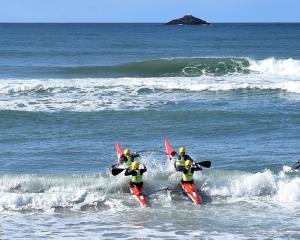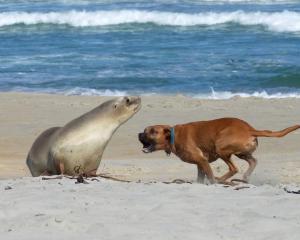
Duder held an audience of scientists and students spellbound yesterday as she outlined its central character - Able Seaman George Vince, who travelled with Captain Robert Falcon Scott on his first Antarctic expedition but who died, aged 22, five months after his arrival on the frozen continent.
Duder told of an ordinary young man from Dorset who joined Scott's expedition in Cape Town, South Africa, in late 1901, after a period serving with the Royal Navy.
He survived gales and monstrous seas, bone-chilling cold and icebergs, ate seal and penguin meat, and helped establish the expedition huts which still stand at McMurdo Sound, only to lose his life sliding down an icy slope into the sea during a blizzard.
A cross in his memory was erected at McMurdo Sound in 1904.
Her inspiration for the book was an "action-packed" three-week visit to the Antarctic last October under the Artists in Antarctica Scheme, Duder told the 130 delegates at the 2008 Annual Antarctic Conference.
But the inspiration was not instantaneous, she said.
It took four months of research and reading to decided to proceed with a fictional story which would contain elements of history and focus on Vince's "tragically short" life.
Duder said she had originally planned to write a non-fiction book but changed her mind.
"The power of the story offers something non-fiction rarely does: a well-told story [which] engages you, emotionally.
You feel with, and for, the characters. No academic writing about the social structure of 19th century England can match . . . Dickens, nor the Russian historian come anywhere Tolstoy.
"In our own literature, think of the power of Maurice Gee, Lloyd Jones, Margaret Mahy and Witi Ihimaera and how their storytelling has illuminated our history and our culture."
Nothing could prepare a person for the immensity and the silence of the Antarctic, Duder said.
"Can I, on the basis of one short visit to the Ross Sea . . . make my readers feel what it [is] like to be there, enjoying, say, the convivial warmth of a famous Kiwi A-frame [hut] out on the Ross Ice Shelf? Or convey the terror of going through the sea ice or getting trapped in a blizzard in one of the historic huts? It's a mysterious thing, this power of language and story to engage and enthral a reader, but I believe I can."
The book will be completed by March and published next year.












